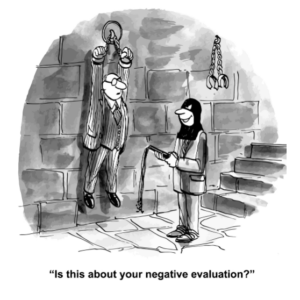HR Help by Payroll People provides HR services and online materials, including summaries of federal and state law, certified harassment training materials, step-by-step procedures for HR tasks, and more. Contact us at 888-380-1869 or email us to learn more or enroll now.
When a Write-Up Gets the Employer in Trouble
Retaliation claims are the “sleeper cells” of employment litigation. Camouflaged as an innocuous act, the retaliation claim typically remains dormant until activated by another, more egregious act. And year after year, it’s the most filed claim with the EEOC. In 2022, of the 73,485 claims filed with the EEOC, 37,898 alleged retaliation – that’s more than 50%!
Are you able to successfully identify potential retaliation claims in your workplace? Consider the following. . .
(**These incidents are based on real cases. Names and other details were changed.**)
Bickering Managers + Sexual Harassment Complaint = 1 HR Headache
You have two management-level employees (James and Jennifer) who are constantly arguing. It is no secret they would each like to see the other fired.
You heard a rumor that they almost went to blows about a scheduling issue, and their screaming match was witnessed by other employees and customers. You plan to bring them both into your office to discuss their behavior and discipline them for their unprofessional conduct.
Before you get a chance to talk to them, Jennifer comes to your office and complains that two former employees abruptly quit because James had created a hostile working environment. Jennifer claims that James sexually harassed these employees, and he had propositioned one of the former employees in exchange for a raise.
What should you do?
- Do nothing about the sexual harassment complaint since the complaint is hearsay about former employees, and continue with the planned meeting regarding the managers’ unprofessional behavior.
- Do nothing about the sexual harassment complaint since the complaining manager is not credible, and discipline them both for their unprofessional behavior.
- Investigate the sexual harassment and continue with the planned meeting with both managers about their behavior. Regardless of the outcome of the meeting with the managers, you cannot discipline the female manager because she brought a sexual harassment complaint to your attention.
- Investigate the sexual harassment complaint and address the unprofessional behavior of both managers. Upon completion of the meeting with the managers, take whatever disciplinary action is appropriate.
Read on for the correct answer.
CALIFORNIA
New Law Requires Workplace Violence Prevention Plan
New Law Presumes Retaliation Against Employee
Navigating the State’s New Noncompete Laws
New Rules Impacting How Employers Handle Off-Duty Cannabis Use
MASSACHUSETTS
Amended Paid Family and Medical Leave
NEW YORK










